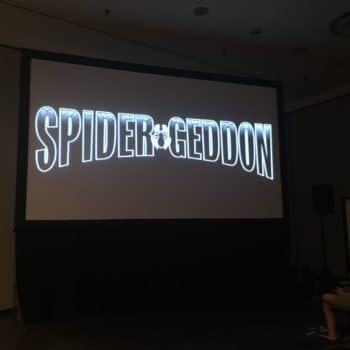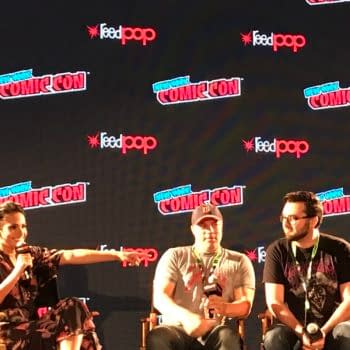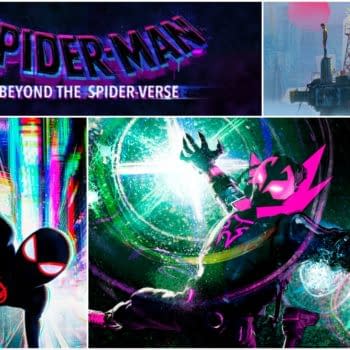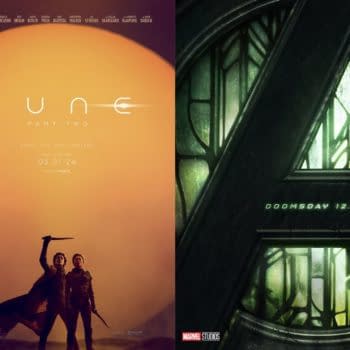Posted in: Movies, san diego comic con | Tagged: Amy Berg, Colin Campbell, Jessica Cail, Rick Lovelord, Tiffany Lovelord, zack stentz
The 'Hollywood Science: Information Versus Motivation' Panel At SDCC Gives Us Some Food For Thought
There might not have been movie stars, comic book writers, or even upcoming trailers and juicy gossip from your favorite films and TV shows, but the Hollywood Science: Information Versus Motivation panel undoubtedly offered some food for thought.
Featuring Zack Stentz, Amy Berg, Jessica Cail, Colin Campbell, and Rick Loverd and his wife Tiffany, all well-known thinkers and scientists in their respective fields, the panel explored science and its accuracies, or inaccuracies as the case may be, as seen in the world of film and other media.
For those who have watched a science fiction film, or really anything involving science on any level, odds are someone was brought in as a consultant to advise filmmakers. Whether that same advice was heeded is another matter entirely, but the folks on the panel are the people you call when you need to know how something works so Internet trolls don't nitpick your movie.
Throughout the panel, the one central theme was the idea of scientific inaccuracies in movies. It's a never-ending struggle to try to integrate scientific literacy into pop culture, but by adding as much accurate science as possible into film and television we can help further scientific literacy on the whole.
The scientists on the panel also wanted to remind the audience that it's not their fault, or even the screenwriter's fault, when mistakes are made and science isn't represented appropriately. Rather, it's a question of balancing what is cool, i.e. what the director and producer(s) think "looks cool,",and what is scientifically sound. Ultimately, sacrifices have to be made for the sake of the story; so if you see something that is completely bonkers on screen, it's probably best to hold your tongue and suspend your disbelief. Even so, examples of "bad science" can be seen as teachable moments.
In ending the conversation, the panelists discussed what they'd like to see next in sci-fi. Some said A.I., as that's a well with unlimited potential, but there are many considerations to take into account with technology. For example, if and when the time comes that, instead of cell phones, we have cybernetic implants, what then are the social and ethical implications of such technology? What happens when we have access to such technologies but third-world communities do not?
Technology is wonderful, but ultimately it's just a tool. The only thing that can really make humanity better, is humanity itself.














